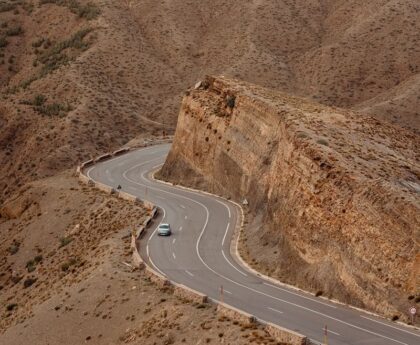Africa West Africa bloc threatens force on Niger coup leaders, French Embassy attacked
Summary
The Economic Community of West African States (ECOWAS) has imposed economic and travel sanctions on Niger’s new military leaders after the country’s seventh coup since 2020. The bloc is threatening to use force if the leaders fail to reinstate ousted President Mohammed Bazoum within a week. The coup has been widely condemned by neighboring countries and international partners, including the United States, the United Nations, the African Union, the European Union, and France. Pro-coup supporters in Niger’s capital, Niamey, burned French flags and attacked the French Embassy. The ECOWAS sanctions include closing borders, banning commercial flights, freezing national assets, and ending aid to Niger. Similar sanctions were imposed on Mali, Burkina Faso, and Guinea following coups in those countries in recent years.
Background
Niger is one of the poorest countries in the world and heavily relies on international aid. It is a strategic country in the fight against Islamist insurgents, as foreign troops from the United States, France, Italy, and Germany are stationed there. Niger is also one of the world’s largest producers of uranium, which is used for nuclear energy and weapons.
ECOWAS Response and Sanctions
The ECOWAS bloc has taken a strong stance against the coup in Niger, demanding the immediate reinstatement of the ousted president and warning of reprisals if their demands are not met. The bloc has imposed economic and travel sanctions, similar to those imposed on Mali, Burkina Faso, and Guinea in the past. These sanctions have led to defaults on debt in some cases but have eventually pushed the coup leaders to agree to timelines for the return to constitutional rule.
International Condemnation and French Embassy Attack
The coup in Niger has been condemned by neighboring countries, international organizations, and former colonial power France. The attack on the French Embassy in Niamey, where protesters burned French flags and threw stones at the building, has further escalated tensions. France has warned that any attack on its nationals or interests will be met with an immediate and uncompromising response.
Philosophical Discussion
External Intervention and Sovereignty
The threat of external intervention posed by the ECOWAS bloc raises important questions about the balance between national sovereignty and international norms. While the principle of non-interference in the internal affairs of sovereign states is often upheld, the ECOWAS response underscores the importance of preserving democracy and constitutional order in the region. The coup in Niger represents a deviation from the democratic norms established by the African Union and the international community.
However, the question remains whether external intervention is the most effective means to address the coup and restore democratic governance. While sanctions can exert significant pressure on the coup leaders, the potential use of force raises concerns about potential escalation and the potential for violence. It is essential for the international community, including ECOWAS, to carefully consider the long-term implications and potential consequences of any intervention.
Editorial
Preserving Democracy and Stability in Niger
The recent military coup in Niger poses a significant threat to democracy and stability in the region. The ECOWAS bloc’s response, including the imposition of economic and travel sanctions, is a clear message that the international community will not tolerate the overthrow of democratically elected governments. It is crucial for ECOWAS to stand firm in its demands for the reinstatement of President Mohammed Bazoum and the return to constitutional order.
However, it is also important to consider the potential consequences of external intervention. The use of force should be a last resort and must be carefully weighed against the potential for further violence and instability. Sanctions can be an effective tool to pressure the coup leaders to comply with international norms, but they should be combined with diplomatic efforts to foster dialogue and mediation.
The international community, including ECOWAS and the United Nations, should work in tandem to find a peaceful and sustainable solution to the crisis in Niger. This includes engaging with regional and international actors, such as neighboring countries and major powers like the United States and France, to ensure a coordinated and comprehensive approach.
Advice
Strengthening Democracy and Governance
The coup in Niger highlights the fragility of democratic institutions in the region and the urgent need to strengthen democracy and governance. While external pressure is necessary to address immediate crises, a long-term focus on building strong democratic institutions is essential to prevent future coups.
Niger, like many other countries in West Africa, faces significant challenges such as poverty, corruption, and security threats. These issues can undermine the stability of democratic governance. Therefore, it is crucial for the international community to provide support and assistance to help address these underlying issues.
This support can come in various forms, including technical assistance for electoral processes, capacity-building for government institutions, and investments in economic development. By addressing the root causes of instability, the international community can contribute to the long-term stability and prosperity of Niger and the entire Sahel region.
Furthermore, it is important to foster regional cooperation and integration. ECOWAS should continue to play a leading role in promoting peace, stability, and democracy in West Africa. This includes facilitating dialogue between member states, sharing best practices in governance, and strengthening regional mechanisms for conflict prevention and resolution.
Ultimately, the goal should be to build resilient democratic institutions that can withstand internal and external pressures. This requires a sustained commitment from the international community and local actors to promote democracy, human rights, and good governance in Niger and across the region.
Disclaimer: The views and opinions expressed in this article are those of the author and do not necessarily reflect the official position of or The New York Times.

<< photo by Josh Hild >>
The image is for illustrative purposes only and does not depict the actual situation.




